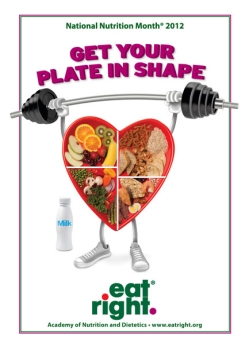By Mary Jane Dittmar
Eating organic foods helps to promote good health because they spare our bodies from the assaults of the toxic pesticides and insecticides generally used to grow food. However, it is not always possible to obtain organic foods for various reasons, including cost and availability. One option, in a pinch, notes Richard Foxx, MD, is to purchase conventional foods that are lower in toxic residues. They include the following:
▪ Fruits: mango, pineapple, kiwi, papaya, and watermelon.
▪ Vegetables: avocado, asparagus, sweet corn, cabbage, eggplant, sweet potato, broccoli, tomato, sweet peas, and onion.
Fruits and vegetables are vital for good health. They are prime sources of antioxidants, which protect the body’s cells, and vitamins and minerals. “15 Foods You Should Be Eating Today,” “EWGs Shoppers Guide to Pesticides,” The Environmental Working Group, online, in Doctors Health Press e-Bulletin, March 1, 2012.
Some Painless Ways to Add Fruits and Vegetables to Your Diet
 |
| www.eatright.org/nnm |
The Academy of Nutrition and Dietetics (formerly the American Dietetic Association) has declared March National Nutritional Month, It is a good time to increase your daily intake of fruits and vegetables. Following are some easy-to-follow suggestions from the Centers for Disease Control and Prevention Web site www.fruitsandveggiesmatter.gov/tips/lunch_dinner.html to help you do this.
- Ask for more vegetable toppings (like mushrooms, peppers, and onions) and less cheese on your pizza.
- Add broccoli, green beans, corn, or peas to a casserole or pasta.
- Have soup. Stick with the basics like tomato or vegetable soup, or mix up some minestrone or veggie chili. When possible, choose soups with less sodium. [Even soups with labels that claim lower salt by major soup makers are too high in sodium. I have found lentil, pea, and minestrone soups by companies in the natural foods industry that have much lower sodium contents—and my husband likes them, to boot. Look for these labels — Mary Jane.]
- Add lettuce, tomato, onion, and cucumber to sandwiches.
- Order salads, vegetable soups, or stir-fried vegetables when eating out.
- Choose beans, corn on the cob, or a side salad with low-calorie salad dressing instead of French fries.
- Try eating at least two vegetables with dinner.
- Canned, dried, and frozen fruits and vegetables are also good options. Look for fruit without added sugar or syrups and vegetables without added salt, butter, or cream sauces.
CHOLESTEROL-LOWERING DRUGS WARNINGS
If you or someone you know is taking cholesterol-lowering drugs in the category known as statins, here is some important information: The U.S. Food and Drug Administration (FDA) has mandated a labeling change involving cognitive (brain-related) side effects and possible increases in blood sugar levels (hyperglycemia) and other conditions.
These drugs, prescribed to help lower “bad” cholesterol (low-density lipoprotein cholesterol), include Lipitor (atorvastatin), Lescol (fluvastatin), Mevacor (lovastatin), Altoprev (lovastatin extended-release), Livalo (pitavastatin), Pravachol (pravastatin), Crestor (rosuvastatin), and Zocor (simvastatin). Combination products include Advicor (lovastatin/niacin extended-release), Simcor (simvastatin/niacin extended-release), and Vytorin (simvastatin/ezetimibe).
The changes the FDA has mandated for the statin labels include the following:
- Liver monitoring. The drug labels have been revised to remove the need for routine periodic monitoring of liver enzymes in patients taking statins. The FDA now recommends that liver enzyme tests be performed before starting statin therapy and as clinically indicated thereafter. According to the FDA, “serious liver injury with statins is rare and unpredictable in individual patients and routine periodic monitoring of liver enzymes does not appear to be effective in detecting or preventing this rare side effect.” Instead, the FDA recommends that patients notify their health care professional immediately if they have the following symptoms of liver problems: unusual fatigue or weakness, loss of appetite, upper belly pain, dark-colored urine, or yellowing of the skin or the whites of the eyes.
- Brain-related effects. Because certain cognitive (brain-related) effects have been reported with statin use, statin labels will now include the information that some patients taking these products have experienced memory loss and confusion. Although these reports say patients’ symptoms were reversed by stopping the statin, the FDA recommends that patients still alert their health care professional if these symptoms occur.
- Blood sugar. The new label will also indicate that increased blood sugar levels (hyperglycemia) have been reported with statin use; some studies have shown that patients being treated with statins may have a “small increased risk of increased blood sugar levels and of being diagnosed with type 2 diabetes mellitus.”
- Muscle injury. The lovastatin label will call to the attention of health care professionals that some medicines may interact with lovastatin, increasing the risk for muscle injury (myopathy/rhabdomyolysis).
The FDA urges that health care professionals and patients report any side effects associated with statin use to FDA MedWatch program. Consumer inquiries may be directed to (888) INFO-FDA. Additional information is available at FDA Drug Safety Communication: Important safety changes for the class of cholesterol-lowering statin drugs.
Information presented here is not intended as medical advice. Consult your medical practitioner.
Mary Jane Dittmar is senior associate editor of Fire Engineering and conference manager of FDIC. Before joining the magazine in January 1991, she served as editor of a trade magazine in the health/nutrition market and held various positions in the educational and medical advertising fields. She has a bachelor’s degree in English/journalism and a master’s degree in communication arts.

